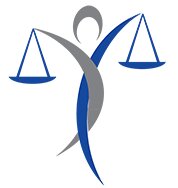Best Workers Compensation Lawyers in Trinidad and Tobago
Share your needs with us, get contacted by law firms.
Free. Takes 2 min.
Or refine your search by selecting a city:
List of the best lawyers in Trinidad and Tobago
About Workers Compensation Law in Trinidad and Tobago
Workers Compensation in Trinidad and Tobago is essentially designed to provide financial and medical benefits to employees who are injured or become ill as a direct result of their job duties. The aim is to ensure that workers receive adequate care and support without having to undergo extensive legal procedures or individual negotiation with employers. The legislation governing Workers Compensation in Trinidad and Tobago is the Workmen’s Compensation Act, which outlines the rights and responsibilities of both workers and employers in cases of workplace injuries or illnesses.
Why You May Need a Lawyer
There are several situations where you might require a lawyer in Workers Compensation matters:
- If you experience delays or denials in receiving your compensation benefits.
- If you have disputes over the extent of your injury, your treatment, or benefits entitlement.
- If your employer does not have insurance or adequate resources to cover your claim.
- If you encounter complex cases involving third-party liability or substantial financial loss.
- If you need help navigating appeals after an adverse decision.
Local Laws Overview
The Workmen’s Compensation Act in Trinidad and Tobago sets the fundamental framework for Workers Compensation. Key elements include:
- Eligibility: Generally, most employees are covered under the Act, but certain types of employees may have specific rules.
- Types of Compensation: Compensation can include medical expenses and compensation for temporary or permanent disabilities.
- Notification: Injuries must be reported to the employer within a specified time frame to ensure benefits eligibility.
- Claim Process: Employers must submit documentation and cooperate with investigations to determine the validity of claims.
- Dispute Resolution: The Act outlines procedures for resolving disputes, which may involve the Commissioner of Labour or the courts.
Frequently Asked Questions
What should I do immediately after a workplace injury?
Seek medical attention promptly and report the injury to your employer as soon as possible to ensure the incident is documented.
Are all employers required to have Workers Compensation insurance?
Yes, the law mandates that most employers provide Workers Compensation coverage for their employees under the Workmen's Compensation Act.
What benefits are generally available under Workers Compensation?
Benefits may include coverage for medical expenses, rehabilitation, and compensation for lost wages or disabilities resulting from a work-related injury or illness.
Can I sue my employer in addition to filing a Workers Compensation claim?
Typically, Workers Compensation is an exclusive remedy, meaning you cannot sue your employer for negligence. There may be exceptions involving third-party negligence.
What happens if my claim is denied?
You have the right to appeal the decision. It’s advisable to consult a lawyer to assist with the appeal process to improve your chances of success.
How long does it take to receive Workers Compensation benefits?
The time frame can vary, but benefits should commence shortly after the claim is approved, particularly if there are no disputes or complications.
Is there a time limit for filing a Workers Compensation claim?
Yes, there are time restrictions. It's crucial to report your injury to your employer immediately and file your claim within a stipulated period as per the Act.
Can I return to work while receiving Workers Compensation?
It depends on your medical condition and the nature of your employment. Transitional or lighter duties might be an option if approved by your doctor.
Does Workers Compensation cover transportation costs for medical visits?
Yes, necessary transportation costs for receiving medical treatment might be covered under Workers Compensation benefits.
Do all workplace injuries qualify for Workers Compensation?
Injuries must be job-related or occur during the course of employment to qualify. Non-job-related injuries are typically not covered.
Additional Resources
For additional help, you can contact:
- Ministry of Labour, Trinidad and Tobago: They provide guidance on Workers Compensation policies and non-discrimination practices.
- Trinidad and Tobago Employers’ Consultative Association (ECA): Offers insights and support for navigating employment-related issues.
- Legal Aid and Advisory Authority: Provides accessible legal advice and support for those who qualify.
Next Steps
If you require legal assistance in a Workers Compensation case, consider the following steps:
- Contact a lawyer specializing in Workers Compensation cases to discuss your situation and options.
- Gather and organize all relevant documents, including medical reports, correspondence, and any evidence related to your claim.
- Keep track of all timelines and deadlines associated with your claim and any potential appeals.
- Stay informed by reviewing updated laws and regulations, ensuring you comply with local legal requirements.
Promptly addressing these actions can help ensure you receive the benefits and legal outcomes you deserve.
Lawzana helps you find the best lawyers and law firms in Trinidad and Tobago through a curated and pre-screened list of qualified legal professionals. Our platform offers rankings and detailed profiles of attorneys and law firms, allowing you to compare based on practice areas, including Workers Compensation, experience, and client feedback.
Each profile includes a description of the firm's areas of practice, client reviews, team members and partners, year of establishment, spoken languages, office locations, contact information, social media presence, and any published articles or resources. Most firms on our platform speak English and are experienced in both local and international legal matters.
Get a quote from top-rated law firms in Trinidad and Tobago — quickly, securely, and without unnecessary hassle.
Disclaimer:
The information provided on this page is for general informational purposes only and does not constitute legal advice. While we strive to ensure the accuracy and relevance of the content, legal information may change over time, and interpretations of the law can vary. You should always consult with a qualified legal professional for advice specific to your situation.
We disclaim all liability for actions taken or not taken based on the content of this page. If you believe any information is incorrect or outdated, please contact us, and we will review and update it where appropriate.
Browse workers compensation law firms by city in Trinidad and Tobago
Refine your search by selecting a city.














